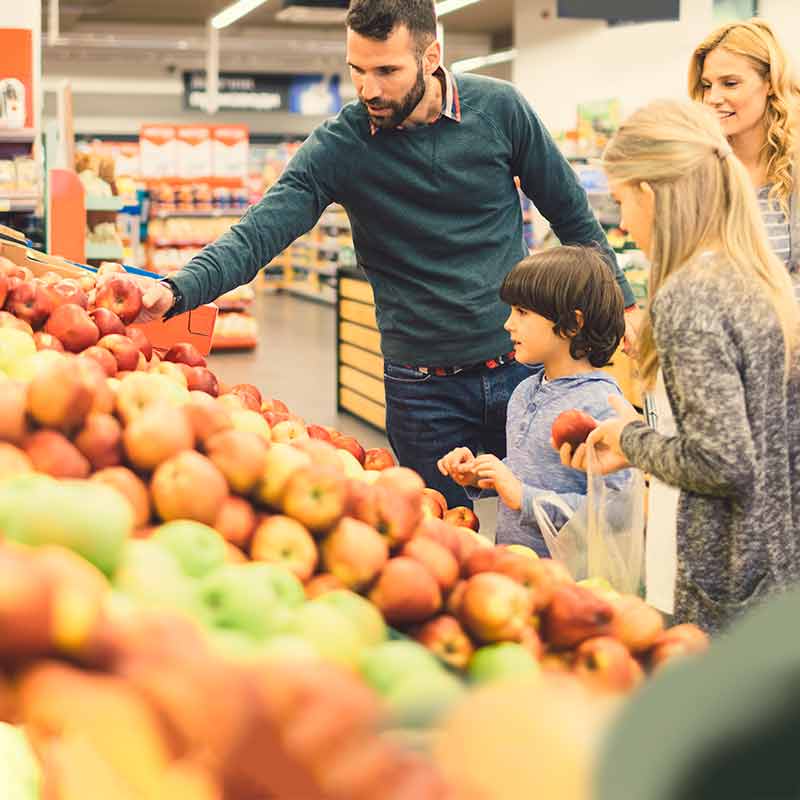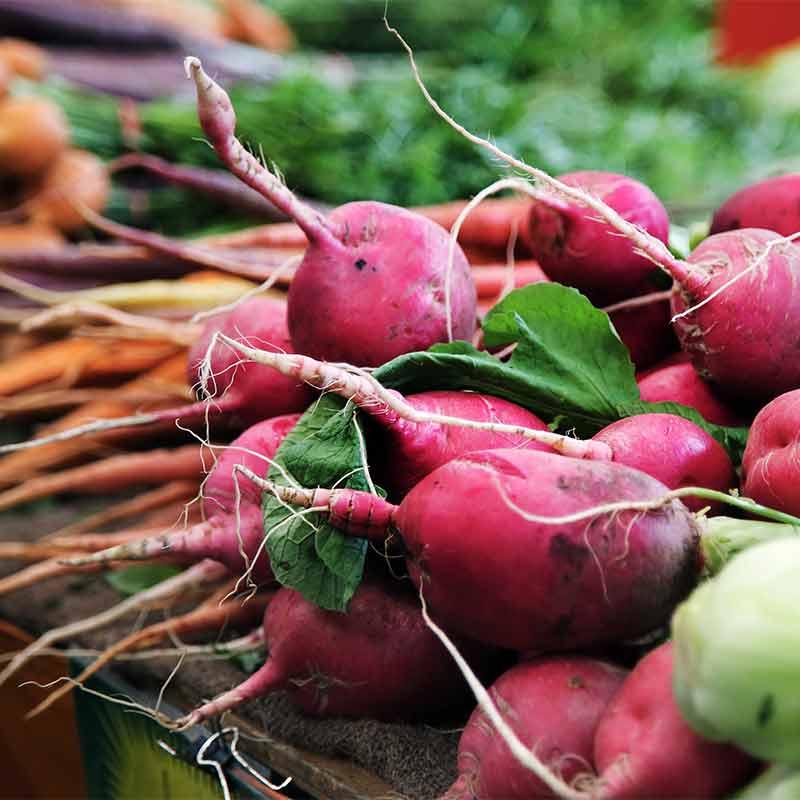Retail food waste: solutions
Retail
Discount older products.
Offer customers a discount for products reaching the end of their shelf-life in order to reduce the need for donation or disposal.
Redesign product displays.
To attract customers with the sight of greater availability of produce, add props underneath produce in the inventory to make it seem fuller.
Allow prepared foods to run out close to closing.
Communicate to customers the need for prepared foods to sell by the end of the day through signage or discounts.
Improve produce specifications (imperfect produce).
Accepting and integrating the sale of off-grade produce (short shelf life, different size/shape/color), also known as “imperfect produce,” into food business menu planning and product lines.
Potential impact of improved produce specifications: 266 thousand tons of waste diverted, $1,039 economic value per ton, 422 thousand tons of GHGs reduced, 39 billion gallons of water saved
Adjust promotions.
Reconsider promotions like “buy one, get one free” that may contribute to food waste at home.
Educate consumers.
Educating consumers at the behavioral decision-making point (location at which the food is bought), has the greatest potential for impact. Topics of discussion can be: food preparation, storage, expiration dates and safe food handling.
In the U.K, the Waste and Resources Action Programme (WRAP) launched Love Food Hate Waste, a national consumer awareness campaign that included print and web materials. It successfully reduced consumer food waste by 21 percent in five years.
Potential impact: 548 thousand tons diverted, 2,336 thousand tons GHGs reduced, $4,531 economic value per ton, 281 billion gallons water saved.


Behind-the-scenes
Track and analyze waste to inform behavioral and operational changes.
Stony Brook University adopted a food waste reduction program called Trim Tax, developed by foodservice contractor Compass Group to help business track and measure food waste costs.
Potential impact of waste tracking and analytics: 571 thousand tons of waste diverted, $2,282 economic value per ton, 2,360 thousand tons of GHGs reduced, 317 billion gallons saved
Streamline inventory.
Improvements in the ability of retail inventory management systems to track an average product’s remaining shelf life (time left to sell an item) and inform efforts to reduce days on hand (how long an item has gone unsold).
Potential impact of improved inventory management: 59 thousand tons of waste diverted, $1,194 economic value per ton, 181 thousand tons of GHGs reduced, 20 billion gallons of water saved
Collaborate with secondary resellers.
Opening retail stores and creating dedicated market environments to sell discounted groceries sourced from food manufacturers and distributors.
Potential impact of secondary resellers: 167 thousand tons of waste diverted, $218 economic value per ton, 510 thousand tons of GHGs reduced, 58 billion gallons of water saved.
Donation
Donate more.
Donate produce and meat, dairy and fish items that are at the end of their shelf life. Work with local food rescue agencies to give back to communities and receive tax reductions.
Using technology platforms to connect individual food donors with recipient organizations to reach smaller-scale food donations. Donation matching software examples include: Spoiler Alert, Zero Percent, Copia, Community Plates, and Food Cowboy
Potential impact of using donation matching software: 150 thousand tons of waste diverted, $2,879 economic value per ton, 555 thousand tons of GHGs reduced, 250 meals recovered